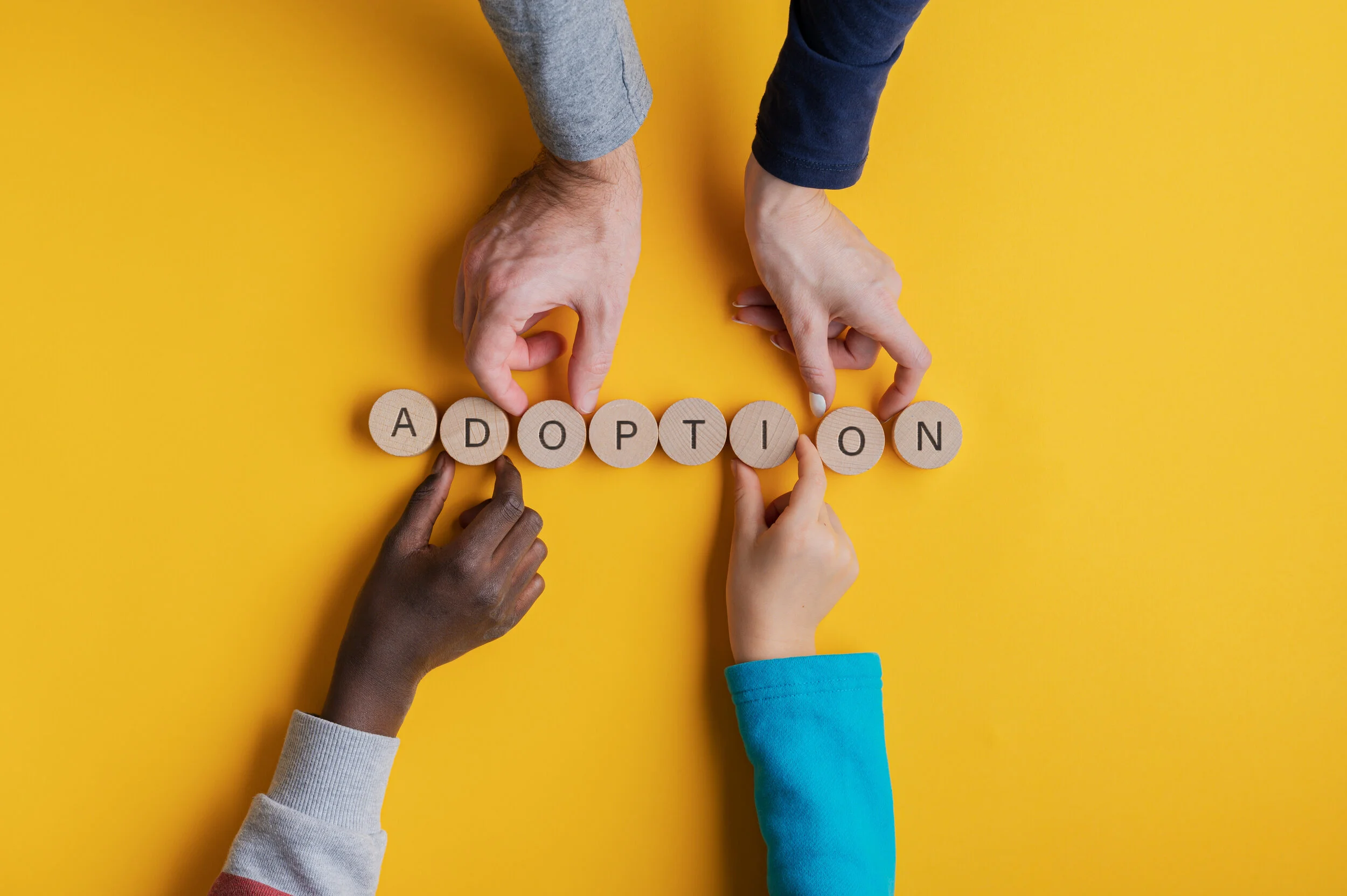Birth parents frequently ask, “Do I still owe child support if my child has been adopted?” The simple answer is no, but there a few things that you should still understand about child support and adoption.
Understanding the Benefits and Process of a Stepparent Adoption
With the anniversary of COVID-19 earlier this month, we have been reminded how unusual and unpredictable the last year has been. Loved ones have been lost to the virus, and parents have been challenged in caring for their families. There is a concern for blended families and what might happen if the custodial parent dies or becomes incapacitated. It is during this period of uncertainty that it is crucial for you to pursue the adoption of a stepchild in order to secure and protect your family.
Adoption Tax Credit
If you adopted in 2020, it is time to consider applying for the Adoption Tax Credit. With the Adoption Tax Credit, certain taxpayers can apply for a credit up to $14,300 per eligible, adopted child. If granted, the adoption credit would be applied toward the taxpayer’s federal tax liability when the tax return is filed, which would effectively lower the federal income taxes owed.
Special 10th Anniversary Scholarship Announcement
Throughout 10 years, we have been touched by so many children and families that have allowed us to be apart of their lives. It is only fitting that we celebrate this anniversary by giving back to the adoption community. To celebrate the 10 year anniversary, we are pleased to announce that we are launching a SCHOLARSHIP for a high school senior in Georgia who has been impacted by adoption! Use the link below to apply today! Please share this information with your family and friends.
The Campbell Law Practice, LLC Is Celebrating 10 Years!
Celebrating 10 years, 203 children, and 130 families whose lives were legally changed because of Adoption!
I am beyond AMAZED at the impact The Campbell Law Practice has been able to have on so many families in the past 10 years. Some of you may not have heard how I began my work in adoptions. You see, it all started in 2011. I saw a volunteer opportunity at the Atlanta Legal Aid Society to help low-income grandparents, who were unexpectedly raising their grandchildren, secure their families via adoption. I jumped on this opportunity and never turned back!
Merry Christmas from The Campbell Law Practice, LLC
ONE OF THE GREATEST GIFTS THAT YOU CAN GIVE A CHILD IS A FAMILY.
During this season, we take time to reflect upon the good things we have … like FAMILY. We are grateful for your family, support, and partnership. Thanks for a great year, and we wish you all the best as you embark on the New Year ahead.
-- From The Campbell Law Practice, LLC Team
Understanding a Georgia Post Adoption Contact Agreement
What is a Post Adoption Contact Agreement?
The adoptive parents (and sometimes the child as well) will voluntarily enter into a postadoption contact agreement, referred to as PACA, with the child’s birth relatives. A PACA are arrangements that allow contact or communication between a child, his or her adoptive family, and members of the child’s birth family or other persons with whom the child has an established relationship after the adoption is finalized. When drafting the agreement, the parties will discuss what the communication will look like, specifying the type, such as calls, letters, emails, or in-person contact, and the frequency of contact plus the number of years the contact will continue. Communication can include things such as the birth mother visiting on Christmas, the child retaining his or her birth siblings’ phone numbers, sharing information about the child with birth relatives, or the adoptive parents sharing photos of the child. The agreement may be structured as broadly or as strictly as the parties desire, and should definitely be drafted with the child’s best interest in mind.
How to Save Money on an Adoption
While a family’s heart might be set on adoption, the financial cost for adoption, which stems from attorney fees, agency fees, and home studies, etc., may be a significant barrier that stops a family from pursuing the adoption. Fortunately, there are various options for financial assistance in financing an adoption, and potential parents should be aware of the options as they prepare for adoption.
Benefits of a Stepparent Adoption
Biological Father Attempts Legitimation to Contest The Adoption
On May 18, 2020, the Supreme Court of Georgia decided the Mathenia v. Brumbelow case, which involved a legitimization petition of a biological father and an attempt to block an adoption. Ultimately, the Supreme Court of Georgia denied the biological father’s legitimation petition, opining that the biological father abandoned his opportunity interest in the child, and thereby terminating his parental rights to the child. As a result, the adoptive parents are now free to continue the adoption proceedings, unencumbered by competing custody or visitation attempts from the biological father.
Notifying the Legal Father of an Adoption
In order to successfully provide notice of the adoption to the father, you must know whether the father of the child is the biological father or the legal father. Since the legal requirements for providing notice to a biological father is different than providing notice to a legal father, it is crucial to know the difference.
A biological father is defined as a male who impregnated the biological mother resulting in the birth of the child. A legal father refers to a male who either: (a) has legally adopted the child; (b) was married to the biological mother of the child after the birth or gestation period; (c) married the legal mother of the child after the child was born and recognized the child as his own; or (d) has legitimized the child.
Understanding the Rights of a Biological Father in an Adoption
In a Georgia adoption, it is very important to understand the difference between a biological father and a legal father. A biological father is defined as a male who impregnated the biological mother resulting in the birth of the child. In contrast, a legal father is defined as a male who has either adopted the child legally, was married to the biological mother of the child at the time of gestation and childbirth, or has legitimated the child with the help of the courts. It is critical to know whether the father of your child is a biological or legal father before you commence the adoption process.
Adoption and Pressing Through COVID-19
Without much of an option, the state of Georgia, the nation and world has been forced to slow down as a result of the pandemic, known as COVID-19. Our new reality has us exercising social distancing, and stocking up on food and household supplies. Also, many parents are now participating with home schooling their children, as a result of school closures.
The Revocation Of A Surrender Of Rights By A Biological Parent
Navigating the adoption process can prove to be a taxing emotional journey for the child, biological parents and adopting parents. It may also be a strenuous legal affair. The complexity of executing a written surrender of rights and effecting a revocation of a previously executed written surrender of rights are often overlooked in the adoption process. It is strongly recommended to use an experienced adoption attorney to navigate this process, instead of trying to handle it pro se or on your own.
Applying for a New Social Security Number After an Adoption
Congratulations on the finalization of the adoption of your minor child. While it likely was a long arduous process, be careful not to relax too much now that you have finalized your adoption. There still remains at least one more item on your post adoption check list to cover, and that is obtaining a new Social Security Number for your child.
NOVEMBER IS NATIONAL ADOPTION MONTH!
The purpose of National Adoption Month is to have a month that is dedicated to raising awareness of the children and youth in foster care as well as, the need for adoptive families for them. Also, during this month it is important to encourage people to learn more about adoption, recognize people who have been impacted by adoption and organize positive adoption related events.
While all adoption related issues are significant, the particular focus the month of November is Foster Care Adoption. The State of Georgia has approximately 13,718 children in foster care as of May 2019. Below is a graph that denotes the demographics of the children in foster care.
A Post Adoption Checklist
How Georgia’s Safe Haven Law Can Help Mothers and End Child Abandonment
While only the eighth most populous state in the United States, Georgia has the second highest rate of babies abandoned by their mothers and has the largest number of babies on the East Coast abandoned in just their first few days of life.
Recently, this alarming epidemic drew national attention with the story of Baby India, a newborn who was found clinging to life, bloody and with her umbilical cord still attached, in a plastic bag near a wooded area in Forsyth County, Georgia. A local family heard Baby India’s cries and came to her rescue. Thankfully, experts, media commentators, and advocates are hearing the cries of babies like India and hoping to point mothers to Georgia’s Safe Haven Law.
What You Need to Know About the Georgia Adoption Reunion Registry
The Georgia Adoption Reunion Registry is maintained by the Division of Family and Children Services (“DFCS”) to organize and provide information to connect adopted individuals and their families. As DFCS states on the Reunion Registry website, “adoptees, birth parents, or siblings who have been permanently separated through adoption often reach a time in their lives when they want more information about their biological family. This ‘need to know’ may be due to medical, genetic, genealogical, or personal reasons.”
Understanding the Infamous ICPC
The Interstate Compact on the Placement of Children (“ICPC” or the “Compact”) is a statutory agreement between all 50 states and the District of Columbia which regulates and ensures uniformity in the process of placing children living in one state into another state. Since the 1950s, the ICPC has been adopted in every U.S. jurisdiction, including the State of Georgia. Before the law became universally adopted, each individual state’s ability to ensure the best interests of a child adopted beyond its borders was geographically limited. A patchwork of conflicting rules and regulations prevented a state from having any oversight of how a child’s well-being was provided for once the child was sent beyond the state’s borders. This was a double-edged sword for states, which could neither help children placed in bad adoption situations or get children into good out-of-state homes.




















